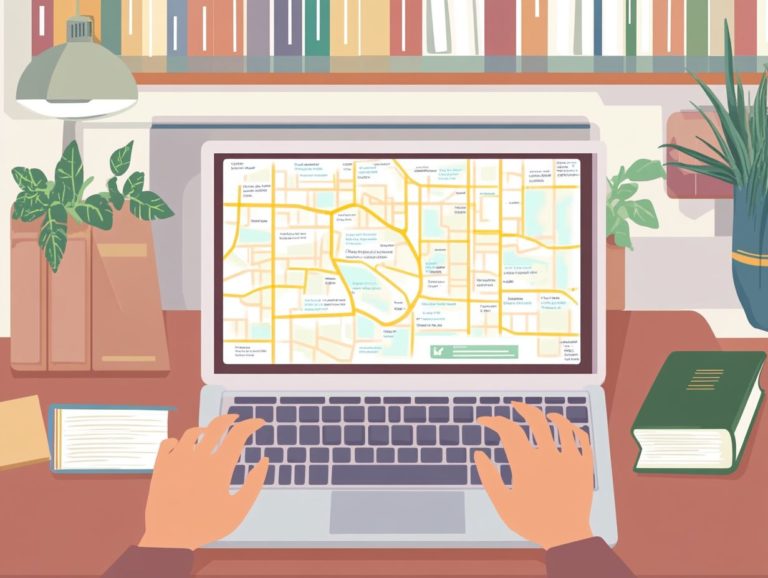How to Determine Your Defense Needs
In today s intricate security landscape, understanding your current defenses is crucial for protecting your valuable assets.
This article explores how to evaluate your existing security protocols, identify potential threats, and assess vulnerabilities within your defense strategy. It offers a roadmap for creating and implementing a robust defense plan that adapts seamlessly to emerging risks.
By committing to regular reviews and updates, you can ensure that your strategies remain effective over time. Fortify your security with insightful, practical guidance and actionable steps that empower you to take charge.
Contents
- Key Takeaways:
- Understanding Your Current Security Measures
- Identifying Potential Threats
- Assessing Your Vulnerabilities
- Creating a Defense Plan
- Implementing Your Defense Plan
- Regularly Reviewing and Updating Your Defense Plan
- Frequently Asked Questions
- What is the first step in determining my defense needs?
- How can I assess my potential threats?
- What factors should I consider when determining my defense needs?
- Should I conduct a vulnerability assessment?
- How can I determine my budget for defense needs?
- What resources are available to help me determine my defense needs?
Key Takeaways:

Regularly assess your current security measures to identify weaknesses or gaps in your defense strategy.
Consider all types of potential threats, including physical, cyber, and internal threats, when determining your defense needs.
Create a clear action plan to strengthen your defenses now, including steps for implementation and regular reviews to stay ahead of evolving threats.
Understanding Your Current Security Measures
Understanding your current security measures against anxiety, particularly in the context of Generalized Anxiety Disorder (GAD), involves a deep look at the psychological defense mechanisms you may be using without realizing it.
Psychologist Kendra Cherry highlights how these unconscious responses protect you and help restore mental balance during stressful times.
By assessing these reactions, you can uncover effective coping strategies that enhance emotional processing and support your mental well-being.
Evaluating Your Current Security Protocols
To effectively evaluate your current protocols, start by identifying the coping skills you use and how well they manage GAD symptoms.
Taking inventory of these methods provides insight into which strategies offer relief and which may hinder progress.
Mindfulness techniques, like meditation, can enhance emotional processing and help you navigate daily stressors. In contrast, avoidance strategies may feel comforting but can deepen your anxiety.
Track improvements in anxiety levels through journaling or self-assessment scales. Note your feelings before and after using specific coping skills.
Incorporating ways to change negative thoughts is also effective. These techniques challenge negative thoughts and promote positive reframing, which supports emotional regulation and resilience.
Identifying Potential Threats
Identifying potential threats to your mental health, particularly regarding anxiety, requires awareness of the stressful situations that can trigger psychological responses.
These responses can lead to Generalized Anxiety Disorder, making it essential to understand these triggers for maintaining well-being and navigating life’s complexities.
Types of Threats to Consider
When exploring the threats contributing to anxiety, recognize both internal and external factors that can amplify stress.
These threats range from social pressures, like fear of judgment or rejection, to environmental factors such as unpredictability. Personal challenges like financial instability or health concerns also elevate anxiety levels.
Navigating these complexities requires heightened awareness of your emotional landscape. Emotional intelligence helps you identify and understand your feelings and reactions.
By recognizing the specific threats you face, you can develop effective coping strategies, fostering resilience in a challenging world.
Assessing Your Vulnerabilities

Assessing your vulnerabilities concerning anxiety involves examining the defense mechanisms you employ.
Understanding how these mechanisms influence your coping skills and overall mental health provides valuable insights that pave the way for enhanced emotional resilience.
Start evaluating your security measures today to protect your mental health!
Areas of Weakness in Your Defense Strategy
Identifying the weaknesses in your defense strategy is essential for effectively reducing anxiety. These vulnerabilities often arise from inadequate or maladaptive ways our minds protect us from feeling bad.
When you rely on strategies like projection blaming your personal shortcomings on others or regression, which means slipping back into earlier behaviors under stress, you may unintentionally harm your self-esteem and disrupt healthy emotional processing.
While these mechanisms might offer temporary relief, they often create barriers to personal growth and true self-understanding.
By fostering education and cultivating self-awareness, you can start to recognize these unhealthy patterns and replace them with healthier responses.
This approach not only enhances your emotional resilience but also strengthens your sense of self, enabling you with more productive coping strategies in the face of anxiety.
Creating a Defense Plan
Crafting a strong defense plan against anxiety requires a structured approach that combines effective coping strategies with a deep understanding of psychological defense mechanisms.
This combination will greatly boost your emotional resilience.
Steps to Develop a Comprehensive Defense Plan
Developing a comprehensive defense plan for anxiety involves a thoughtful series of actionable steps. Integrate effective coping skills and treatment options tailored specifically to your needs.
Start by setting up a daily routine that fosters stability and predictability key elements in managing anxiety.
Incorporate mindfulness practices, such as meditation or deep-breathing exercises, to significantly enhance your emotional regulation and help alleviate overwhelming feelings.
Don’t hesitate to seek professional help from a therapist or counselor. Their support can provide invaluable strategies for coping.
Make it a habit to check in on your progress and adapt your plans based on feedback. This ensures that your strategies remain effective and align with your changing needs.
This personalized approach not only builds resilience but also empowers you to take control of your anxiety.
Implementing Your Defense Plan
Implementing your defense plan requires unwavering commitment and consistency.
Focus on coping strategies that resonate with your understanding of psychological defense mechanisms and the nuances of emotional processing.
Effective Strategies for Implementation

To effectively implement your defense plan, consider various strategies that enhance your coping skills and elevate your self-awareness in managing anxiety.
One powerful approach is journaling. This practice allows you to articulate your thoughts and feelings, helping you recognize patterns that may contribute to your anxiety.
Engaging in therapy sessions provides a supportive environment to explore and address underlying issues.
Practicing meditation helps cultivate mindfulness, enabling you to stay grounded in the present moment.
Conduct regular self-assessments to evaluate the effectiveness of these techniques and make adjustments as needed.
By adapting these strategies to fit your personal needs and experiences, you can better navigate your emotional landscape and significantly improve your overall well-being.
Regularly Reviewing and Updating Your Defense Plan
Regularly reviewing and updating your defense plan is crucial for maintaining its effectiveness against anxiety. This ensures that it remains in harmony with your evolving psychological responses and emotional processing needs.
This proactive approach enables you to adapt and thrive in the face of challenges.
Ready to take the next step? Let’s dive into your personalized plan!
Importance of Ongoing Assessment and Adaptation
The importance of ongoing assessment and adaptation in your defense plan is key for reducing anxiety and enhancing your self-esteem.
By implementing adaptive coping strategies, which are techniques that help you manage stress and adapt to challenges, you can gain a deeper understanding of your triggers and reactions. This allows for a more personalized approach to managing anxiety.
Regular evaluations, perhaps through self-reflection journals, provide insights into your personal growth and emotional responses. This transforms often overwhelming feelings of anxiety into manageable experiences.
Consulting with mental health professionals offers valuable guidance and new techniques. This helps you build a support system that fosters resilience. Ultimately, this proactive approach enables you to take control, equipping you with the skills needed to navigate your journey with confidence.
Frequently Asked Questions
What is the first step in determining my defense needs?
The first step is to assess your current situation and identify any potential threats or vulnerabilities.
How can I assess my potential threats?

Conduct a risk analysis by reviewing past incidents and patterns. Consulting a security expert can provide additional insights.
What factors should I consider when determining my defense needs?
Factors to consider include your location, industry, type of business, value of assets, and any specific risks or threats relevant to your situation.
Should I conduct a vulnerability assessment?
Yes, a vulnerability assessment is crucial for determining your defense needs, as it helps identify weaknesses or areas needing improvement in your security strategy.
How can I determine my budget for defense needs?
Allocate a budget based on the level of risk and potential impact of a security breach. Consider consulting with security professionals for a more accurate estimate.
What resources are available to help me determine my defense needs?
Various resources are available, such as online risk assessment tools, security consultants, and government agencies. Researching and consulting multiple sources can provide a well-rounded understanding of your specific needs.
Start your assessment today!






